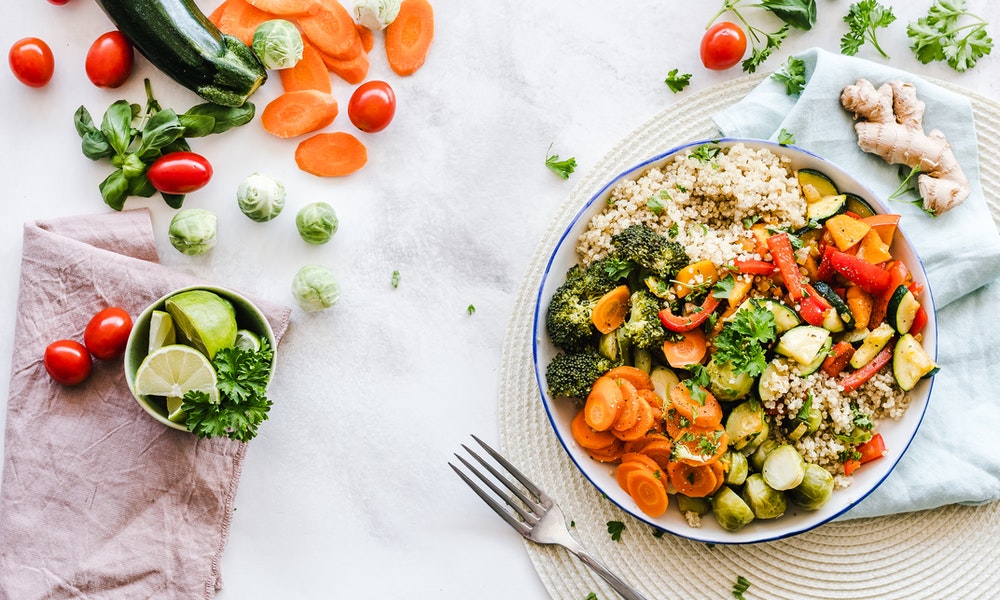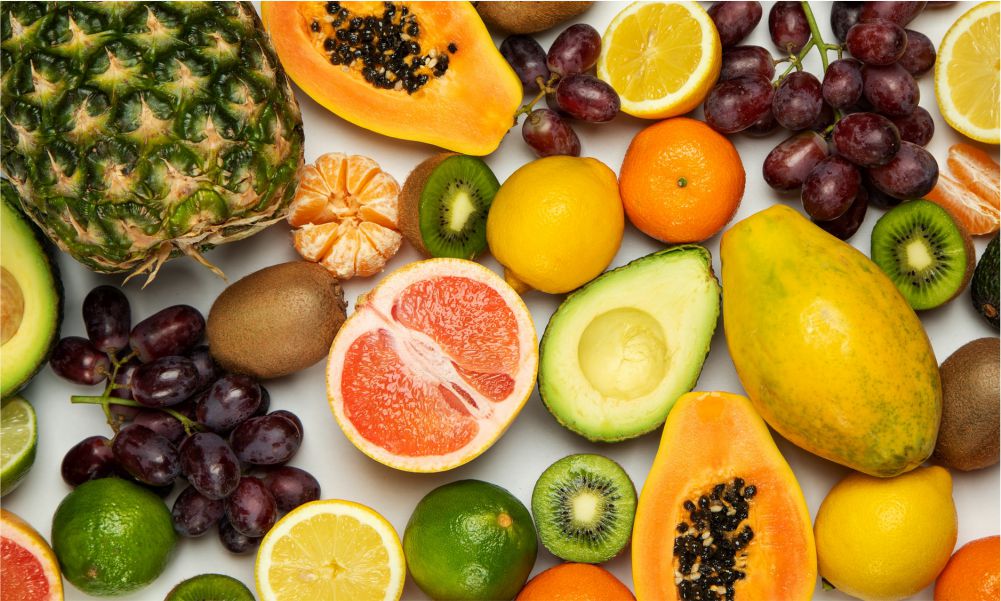
by Maryam Saleh | Jun 7, 2021 | Health & Wellness
Constipation is defined as when stool moves too slowly through the digestive tract. It also occurs when stool cannot be eliminated effectively from the rectum, which causes the stool to become hard, dry, and painful.
Though occasional constipation is common, some people experience chronic constipation that interferes with their day-to-day activities.
What are the Causes of Constipation
The causes of constipation are numerous and they include;
Small tears in the skin around the anus (anal fissure),
Blockage in the intestines (bowel obstruction),
Colon cancer,
Narrowing of the colon (bowel stricture),
Rectal cancer,
Bulging of the rectum through the back wall of the vaginal cavity (rectocele),
Problems with the nerves around the colon and rectum,
Difficulty with the muscles involved in elimination,
Diabetes,
Pregnancy, e.t.c.
How to Avoid Constipation
1. Eat a Lot of Fiber
Eating a lot of fibre-filled foods increases the bulk and consistency of bowel movements. It helps them pass through the digestive system more quickly, easily and avoid constipation. There are different dietary fibres, but in general, they fall into two categories: insoluble and soluble fibres.
Insoluble fibres are present in vegetables and whole grains. They add bulk to stool and help them pass quickly and easily through the digestive system.
Soluble Fibers; present in nuts, seeds, beans, lentils, peas, and fruits. They absorb water and form a gel-like paste, which softens the stool, improves its consistency, and avoids constipation.
Examples of Some High-Fibre Foods
Whole grains
Such as whole wheat bread and pasta, oatmeal
Legumes
Such as lentils, black beans, kidney beans, and soybeans
Fruits
Such as berries, apples with the skin on, oranges, dates, and pears
Vegetables
Such as carrots, broccoli, green peas, and spinach.
Nuts
Such as almonds, peanuts, and groundnuts.
2. Drink Plenty of Fluids
Dehydration can cause constipation. To avoid constipation, it is important to drink enough water and stay hydrated which is good for your overall health. Naturally sweetened fruit and vegetable juices and soups help fibre work well.
This should make your stool softer and easier to pass.
3. Conduct Regular Exercises
Gentle exercises like going for regular walks, swimming, cycling, or jogging, e.t.c. helps with digestion thereby, avoiding constipation.
Stay as active as possible for your general well-being as well.
4. Eat Prebiotic Foods
Prebiotics are an indigestible carbohydrate fibre. Although dietary fibres prevent constipation by improving the consistency and bulk of stool, prebiotics has their effects by improving digestive health by feeding the beneficial bacteria in the gut.
In fact, some probiotics may help increase the frequency of bowel movements, as well as make stool softer and avoid constipation.
Prebiotic foods include garlic, onions, bananas, e.t.c.
5. Avoid Fast Foods!
Foods like; chips, burgers, pizza, meat, frozen meals, snack, processed foods; such as hot dogs or some microwavable dinners are bad for you.
They contain high calories which cause indigestion and are not healthy for the body.
6. Try to Manage Stress
Get a lot of rest, exercise, eat healthy food, do what you like in your leisure time, connect with family and friends, go out and have fun.
Lastly, don’t be hard on yourself.
7. Don’t Ignore the Urge to Sass stool
Whenever nature is calling, don’t wait, don’t ignore it, just go. Its nature’s call! When you ignore it, the moisture: is been absorbed thereby making it dry and hard. Try to create a regular schedule for bowel movements, especially after a meal.
Conclusion
Constipation can hamper the normal functioning of your body system, that’s why it’s best prevented by practising the tips provided in this post.
Perhaps, you have struggled with constipation in the past, how did you overcome it?

by Maryam Saleh | Jun 6, 2021 | Health & Wellness
Eyes are the window to the soul. Without our vision, almost everything comes to a halt. Without the eyes, you won’t be able to read this today. Good eye health starts with the food on your plate. Many of the vitamins and antioxidants that improve eyesight naturally are found in common foods. On that note, I’ll be listing some of the foods that will help you improve your eyesight without you using glasses.
Foods That Will Help You Improve Eyesight Without the Use of Glasses
1. Fish
Fish are rich sources of omega-3 fatty acids. Oily fish have oil in their gut and body tissue. Therefore, eating them offers higher levels of omega-3-rich fish oil. Examples of fish that contain the most beneficial levels of omega-3s include tuna, salmon, mackerel, sardines e.t.c.
Fish oil like cod liver oil can reverse dry eye, especially dry eye caused by spending too much time on a computer. It also contains omega-3 fatty acids as well as vitamin A which makes them one of the best foods to improve your eyesight without the use of glasses.
2. Nuts
Nuts are also rich in omega-3 fatty acids and also contain a high level of vitamin E which improves eyesight without glasses. Vitamin E protects the eye from age-related damage.
Nuts are available almost everywhere. E.g. walnuts, almonds, cashew nuts, peanuts, hazelnuts, groundnuts e.t.c.
3. Seeds
Seeds are also high in omega-3s and rich sources of vitamin E which are foods to improve eyesight without glasses. This powerful antioxidant vitamin helps maintain healthy eyes because it decreases the risk of age-related degeneration and cataracts.
Examples include chia seeds, pumpkin seeds, melon seeds, sunflower seeds e.t.c.
4. Leafy Green Vegetables
Leafy green vegetables are rich in both lutein and zeaxanthin and also a good source of vitamin C. Lutein and zeaxanthin are antioxidants found in the pigments of leafy green vegetables and other brightly coloured foods. They protect the macula, the area of the eye that gives us our central, most detailed vision, and improves eyesight without glasses.
Well-known leafy greens include spinach, cabbage, waterleaf, lettuce, moringa, broccoli, peas.
5. Carrots
Carrots are rich in both Vitamin A and beta carotene; a component of a protein that helps the retina to absorb light and gives carrots their orange colour. Vitamin A plays an important role in vision perhaps the best-known eye-healthy nutrient. The retina needs plenty of vitamin A to help turn light rays into the images we see.
Therefore, without enough vitamin A, the eyes cannot stay moist enough to prevent dry eyes.
6. Sweet potatoes
Like carrots, sweet potatoes are also rich in beta carotene, a form of vitamin A that helps with night vision, the ability of the eyes to adjust to the darkness. They are also a good source of the antioxidant vitamin E.
One sweet potato also has more than half the vitamin C you need in a day and a little vitamin E.
7. Lean Meat and Poultry
Beef is rich in zinc which can help delay age-related sight loss. The eye itself contains high levels of zinc, particularly in the retina, and the vascular tissue surrounding the retina. Meats such as chicken breast also contain zinc, but at lower levels than beef.
Zinc brings vitamin A from your liver to your retina, where it’s used to make the protective pigment melanin and helps improve eyesight without glasses.
Oysters have more zinc than any other food. Beef, liver, and chicken (both dark and breast meat) are all good sources.
8. Eggs
Eggs are good sources of lutein and zeaxanthin, which reduce the risk of age-related vision loss. Eggs are also excellent sources of vitamins C and E, and zinc. The zinc in an egg will help the body use the lutein and zeaxanthin from its yolk.
The yellow-orange color of these compounds blocks harmful blue light from damaging your retina. This makes eggs one of the best foods to improve eyesight without glasses.
9. Water
It is not a surprise that a fluid essential to life is also vital to eye health. Drinking plenty of water can prevent dehydration, which may reduce the symptoms of dry eyes.
10. Beans (Legumes)
Zinc helps keep the retina healthy, protects the eyes from the damaging effects of light, and improves eyesight without glasses. However, zinc can lower the amount of copper in the body, which we need to help form red blood cells.
Fortunately, you can increase both at once with all kinds of beans (legumes), including black-eyed peas, kidney beans, lentils, and lima beans.
11. Fruits and Veggies Rich in Vitamin C
Vitamin C is important to the health of the eye. As an antioxidant, it helps protect the body from damage caused by some things we eat, unhealthy habits, and environmental factors. Vitamin C helps repair and grow new tissue cells. Excellent sources of vitamin C include; citrus fruits, such as oranges, tangerines, grapefruit, and lemons.
Lots of other foods offer vitamin C, including peaches, red bell peppers, tomatoes, and strawberries. Antioxidants can prevent cataracts and many other eye diseases.
12. Whole Grains
Grains contain vitamin E, niacin, and zinc, which provide a lot of benefits to the eyes. They also reduce the risk of cataracts, age-related degeneration of the eyes and one of the foods to improve eyesight without glasses.
However, the reduced likelihood of blood sugar levels could damage the retina with time and protect eye tissue from light and inflammation.
Conclusion
Lastly, the foods mentioned above are not only for the eyes but for the body too altogether. Maintaining a healthy lifestyle can help to lower the risk of eye problems. Don’t take your eyes for granted. Be healthy!
You should also check out these foods that help increase metabolism.

by Maryam Saleh | Jun 5, 2021 | Health & Wellness
Weight loss has been on the trend nowadays. People wanting to get rid of body fats, belly fats, and so on to be fashionable, or to just lose weight because of people body shaming them. People use all methods available without considering if it is healthy or not just to achieve desired results, which could lead to deterioration of their health. Nonetheless, there are healthy ways in which it can be done patiently. Employing these methods might be of help in your journey to weight loss. Nutrition for weight loss is a way of losing weight healthily by modifying your diet.
In this article, I will be walking you through the nutrition for weight loss. Stay with me!
Nutrition for Weight Loss
1. Cut Back on Refined Carbohydrates
Reducing carbohydrates mainly sugar and starch from your diet can help keep your appetite in check, lower insulin levels, and make you lose weight. It is not necessary to adhere to a low carbohydrate diet.
However, it should be replaced with unprocessed carbohydrates. For example; instead of white bread, white rice, and sodas, eat more vegetables and whole grains like oats, brown rice, etc.
2. Eat Lots of Protein
Protein is also nutrition for weight loss. Fatty fish like salmon, tuna, mackerel, sardines, etc. are high-quality proteins loaded with healthy fats (omega-3 fatty acids) and various important nutrients. Meat has been demonized especially red meat. It has been blamed for various health problems. Though, processed meat is unhealthy. But meat is a weight-loss-friendly food, especially lean meat because it contains high protein content. However, lentils, black beans, kidney beans, and soya beans are high in protein and fiber.
Dairy products are also high in calcium, which aids fat burning. Other low-fat, high-protein dairy products include Greek yoghurt and cheese. Full-fat Yoghurt is another excellent dairy food. Low-fat yogurt is usually loaded with sugar, so it’s best to avoid it. Diets with adequate protein can help reduce cravings and thoughts about food, reduce the desire to have a late-night snack, and it makes you feel full.
3. Eat Only Healthy Fats
Olive oil and coconut oil are high in fatty acids of a medium length which boosts satiety. It’s not about adding these oils to your diet but replacing some of your other cooking fats with them. They are probably part of the healthiest fats on the planet.
4. Exercise a Lot
Exercise done regularly and every day can help you lose weight more quickly. You don’t have to necessarily go to the gym. There are simple exercises one can do on their own e.g. brisk walking, jogging, running, cycling, or swimming is very beneficial for weight loss and general health. Surely, this is also nutrition for weight loss.
5. Avoid Sugary Drinks and Sodas
They are mostly filled with sweeteners, additives, refined sugar, preservatives, etc. When you drink liquid calories, your brain doesn’t recognize them as food. Thus, drastically increasing total calorie intake which is associated with weight gain.
6. Take Green Vegetables
Eating green vegetables is a great way to increase the volume of your meals, without increasing the calories and carbohydrates. They are also loaded with many vitamins, antioxidants, minerals like calcium which aids fat burning and fiber. Examples include; broccoli, spinach, tomatoes, cabbage, lettuce, cucumber, etc.
Boiled Potatoes
Boiled potatoes are also nutrition for weight loss. They are high in potassium, a nutrient that plays an important role in blood pressure control. They naturally make you feel full and eat less of other foods, thereby aiding weight loss. Also, they can be eaten together with vegetables to give you a balanced diet.
Apple Cider Vinegar
It is well known in the natural health society. It is mostly used in condiments like dressings. However, some people dilute it in water and drink to treat indigestion and for weight loss. Vinegar has also been shown to reduce blood sugar levels after meals.
Nuts
Nuts are not as fattening as you would expect. They are an excellent snack, containing balanced amounts of protein, fiber, and healthy fats. Just make sure not to go extra, as they are still fairly high in calories. If you tend to eat massive amounts of nuts, it may be best to avoid them.
Chili Pepper
Eating chili peppers may be useful on a weight loss diet. They contain capsaicin, a substance shown to reduce appetite and increase fat burning. In addition, this substance is even sold in supplement form and is a common ingredient in many commercial weight loss supplements.
Fruits
We all agree that eating fruits is healthy, not just for weight loss but for the general health and functioning of the body too. The fruits that deserve to be highlighted are grapefruit and avocados. They are high in carbohydrates, loaded with healthy fats; contain lots of water and fiber. However, all other fruits are also excellent for weight loss.
7. Drink Lots of Water
Even if you don’t want to lose weight, staying hydrated is important for your general health. Drinking 4 to 5 liters of water each day is recommended and will burn more calories. Drink water, especially before meals. It reduces your appetite as well as calorie intake.
In addition, drinking warm water with lemon in the morning on an empty stomach helps start up your metabolism and digestive system as well. You can also just add water to your food, making a soup.
8. Drink Green Tea and Coffee
Coffee and green tea have many benefits, one of them being weight loss nutrition. Green tea contains small amounts of caffeine; which is loaded with powerful antioxidants called catechins. They are believed to work synergistically with caffeine to enhance fat burning. Preferably black, coffee is loaded with antioxidants. Just make sure not to add a bunch of sugar or other high-calorie ingredients to your coffee.
9. Try Intermittent Fasting
Intermittent fasting is an eating pattern in which people cycle between periods of fasting and eating. It does not necessarily specify which food you should eat but rather, when you should eat them. Intermittent fasting of different methods; alternate-day, periodic, and time-restricted fasting. It is similar to a calorie restriction diet which helps in weight loss.
10. Keep Healthy Food around in Case You Get Hungry
Keeping healthy food around can help prevent you from eating something unhealthy if you become hungry. Snacks that are easily portable and simple to prepare include whole fruits, nuts, carrots, yoghurt and boiled eggs, water, etc.
11. Instead of Dieting, Eat Healthily
Dieting can lead to you starving yourself and missing the essential nutrients needed in the body. Aim to become a healthier, happier, and fitter person, focus on nourishing your body instead of depriving it, weight loss will then follow, naturally.
12. Chew More Slowly
Your brain may take a while to register that you’ve had enough to eat. Chewing more slowly can help you eat fewer calories. It is a component of mindful eating, which helps you slow down your food intake and pay attention to each bite thereby aiding weight loss.
Conclusion
Losing weight is not worth you starving yourself and staying hungry all the time, you will be missing essential nutrients. But doing it the healthy way is preferable. And also not all methods apply to everyone, but with perseverance, you’ll get there. Stay healthy!
If you find this article help, kindly leave a comment for me in the comments section. Thank you.
You could also read on 12 foods that increase metabolism.



